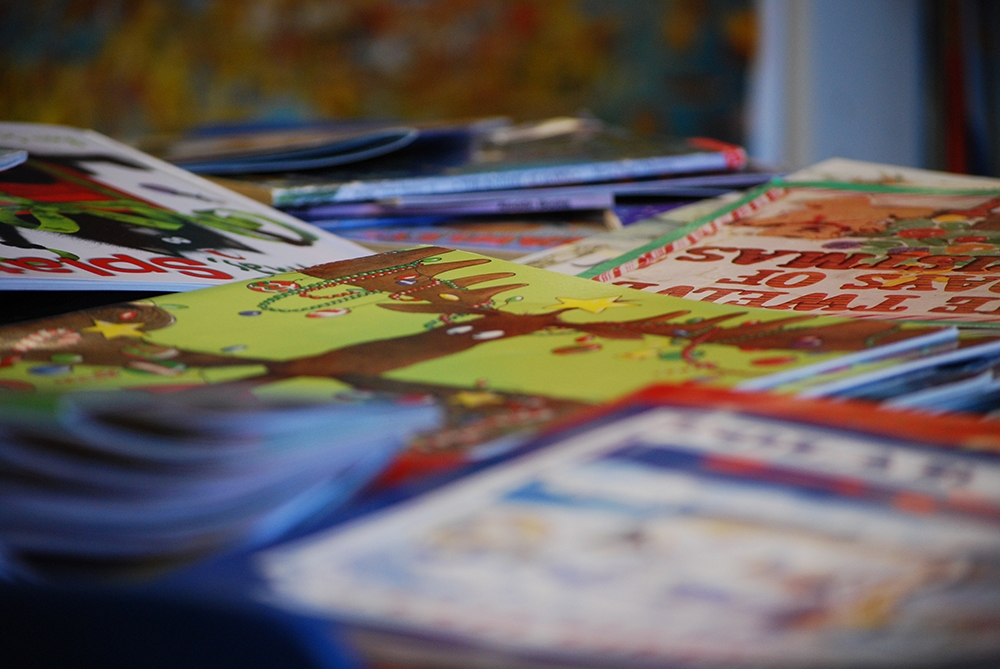Jodie Vanderslot | Staff Writer
Featured image: Many children’s books offer valuable lessons to adults living stressful lives. | Courtesy of Nick Amoscato (Flickr)
With final exams around the corner, many of us are reminiscing about a simpler time when we were younger and living stress-free lives. During these difficult times, studies have shown that reading can help reduce stress levels. But with so many textbooks, course kits and mandatory readings to do for class, no one wants the added work of picking up a novel to de-stress.
Quarter-life crisis does exist and sometimes it takes the simplicity of a story to regain and re-establish our mindset. So if you find yourself feeling overwhelmed by the stack of readings you have yet to finish from this semester, confused if you’re even on the right path or you find yourself longing for your carefree childhood days, here are some popular children’s books to help alleviate your stress and remind you of a few important things you’ve probably misplaced throughout the years.
When the message is so important and so deceptively simple, it can be hard to understand but children’s literature has the tendency to write for adults.
Ish by Peter H. Reynolds, has a great message for creators of any medium. This story is recommended by Michelle Pham, assistant co-ordinator at the Wiggins Childcare Centre. The story illustrates that not everyone will be able to understand or resonate the way you do certain things, but do not let their opinion deter you from your passion. Ish, “encourages process over product in creativity,” says Pham.
Reynolds’ story inspires creativity, belief in one’s own ideas and perseverance. The young boy, Ramon, is criticized by his brother about his artwork, and although the criticism makes him consider giving up his passion altogether, he learns that you don’t always have to get it right or make it perfect. Sometimes “ish” is enough, so long as you’re doing it and it makes you happy.
In the tale The Heart and the Bottle, by Oliver Jeffers, Jeffers tells a story about dealing with loss and overcoming it. Understanding and handling a loss at any age is difficult. We often want to protect ourselves from getting hurt and in doing this, we may unconsciously close ourselves off to the people closest to us and avoid taking risks by putting our heart away to keep it safe. However, sooner or later our emotions have to be addressed and dealt with. The thought-provoking tale will make you reflect on how you’ve handled your own losses and struggles in life.
The Little Prince by Antoine de Saint-Exupéry is recommended by Emre Koçak, a third-year psychology student. The Little Prince reminds us that our state of mind is everything, and even when we think we understand something, there is always more to learn. First published in 1943 and recently adapted into a film, the timeless story is a book for children and for grown-ups. Filled with simple truths, it takes us back to how we used to see the world in light of our innocence. With a sense of wonderment and joy, the possibilities are endless, but somehow with age we lose this effortless ability to really live and take in the world around us. “Our society builds stories over stories of what should be in the world and who we should be in it,”says Koçak. Our mindset is flexible, we just have to choose to see things differently. “[There are] so many lessons in such a small book,” adds Koçak.
Where the Sidewalk Ends by Shel Silverstein. “Where the Sidewalk Ends,” “Listen to the Mustn’ts” and “The Missing Piece” are poems from Silverstein’s collection Where the Sidewalk Ends. Silverstein imparts some of his many life lessons in the form of lighthearted, easy-to-read poetry. As a child, they’re silly rhymes, but re-read as an adult and there is depth to his words and wisdom behind them.
Zero by Kathryn Otoshi. This book, published in 2010, has a powerful message that is always relevant. Finding the value in others is often easier than finding the worth in yourself, which is what Zero is learning to do. The characters are numbers, and Zero explores issues of value and self-worth, and like the rest of the numbers, she wants to count in more ways than one. It can be hard to think positively if you feel empty inside, if you’re constantly comparing ourselves to others. “Those numbers have value. That’s why they count […] But how could a number worth nothing become something? Zero feels empty inside.” wrote Otoshi in Zero.
Childhood is often lined with imaginary worlds, make-believe games and stories we probably didn’t appreciate enough when we were younger. While the majority of university students have literally outgrown the definition of child, many of the messages and stories in children’s literature ring true to the adult world. Perhaps these stories were trying to prepare us for the vast opportunities and responsibilities that adulthood is plagued with, or maybe the intent was that we would carry these stories with us well into our university career and far after. There really are still some things from our childhood we just can’t seem to kick, and maybe that is because we shouldn’t.




